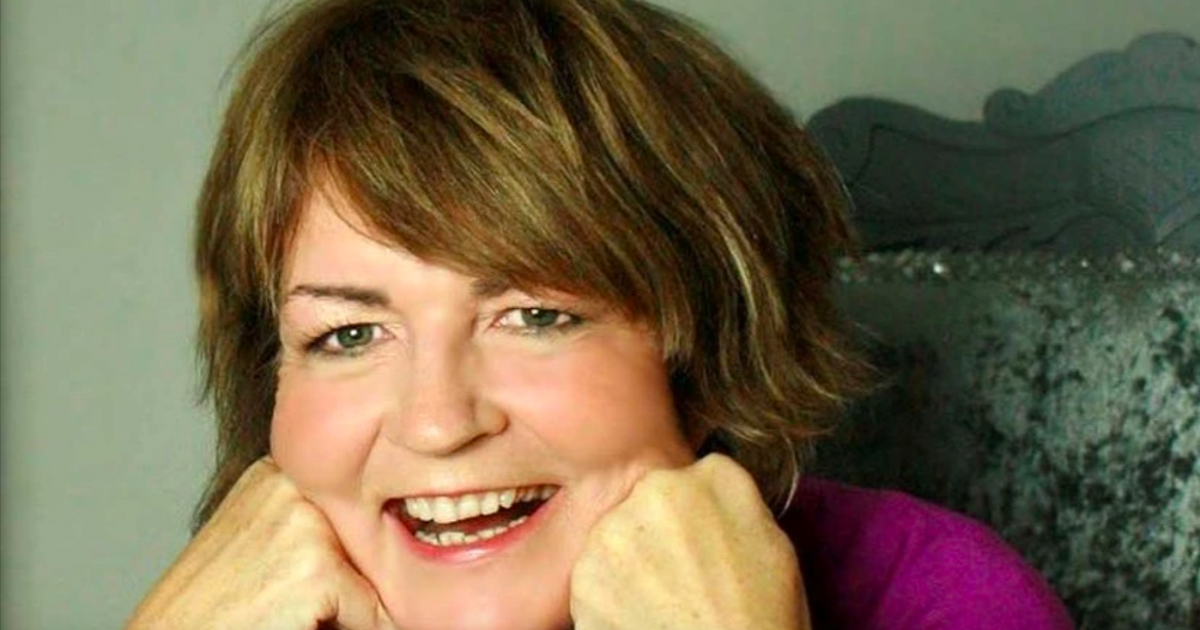Louise's Relationship With Her Body
- Breast cancer survivor Louise Manson, 54, has made it her mission to not let her diagnosis affect her sex life, and has a book out about it now.
- A hematoma made Louise’s breast ‘explode’ – she didn’t let that negatively impact her sex life.
- Some doctors say you should wait at least two weeks after treatment before having sex again.
A decade after cancer made its entrance into her life, the perky mom of two now has written a book about cancer in relation to sex.
Read MoreView this post on Instagram
But a stabbing pain in her left breast before the act concerned her. Its progression in its growth was concerning enough for her and her partner to make a pretty urgent call for an ambulance. Moments later, Louise knew that her breast was exploding. Jokingly, she says that after this is when it “looked like it had been in five rounds with Mike Tyson.”
Her trip to the hospital thereafter is when the hematoma diagnosis came. This is when a congregated pool of blood gathers beneath the skin, generating bruising and swelling. This next inconvenience in Louise’s health that came after breast cancer treatment didn’t stop her, again, from getting back to what she loves after recovery. Manson says that sex is always part of her life – even during chemo. Even in recovery. Even after her breast exploded.
Louise’s Cancer Journey
Louise’s treatment journey included a double mastectomy and reconstruction as part of her treatment. After the hematoma made her breast ‘explode,’ the former journalist said that “I found out I had breast cancer in 2011 and had seven breast cancer tumors removed before my double mastectomy and reconstruction.”
She says that she started to prioritize intimate time with her partner after her diagnosis – something that not a lot of patients do during such a life-changing time.
View this post on Instagram
Some doctors say you should wait at least two weeks before having sex; Manson reports that she’d been proud of my her new, natural-looking, tumor-free boobs.
Sex After Cancer
31-year-old Meghan Koziel, a breast cancer survivor, wants to help women improve their sex lives after cancer, she says. Koziel is a big proponent of owning your confidence and sexuality, particularly after battling cancer.
Koziel tells SurvivorNet, "We are sexual beings. And just because we had cancer doesn't mean that we can't still be just as beautiful, just as fun. And just as sexy in the bedroom."
Koziel is a role model for what’s possible after cancer, and how you can still continue to thrive, despite physical hardships. She’s also a big advocate for education, communication, and research, all in the name of fostering a healthy sex life after cancer. She says, “Communicate, tell [your partner] what feels good. Find different companies that can actually help your dryness, your pain and your discomfort [during sex].”
Manson exemplifies what it means to embrace change and continue to live life how you want in whichever way possible in terms of sexuality. A diagnosis doesn’t have to mean the end of everything you enjoy.
"Don't be afraid to ask your doctor for suggestions, try different products, try different things that can help you have fun in the bedroom," she says. "Don't be afraid of different lubricants. Don't be afraid of using CBD. Don't be afraid of using toys. Women need to know that regaining your sexual confidence is a struggle. It's not an overnight thing."
Understanding Breast Cancer
Treatment looks different for everyone – especially in Louise’s case, involving a hematoma.
Most women with breast cancer, like Louise, will have surgery at some point in their treatment. Depending on how far your cancer has spread and your personal preferences, you and your doctor may decide to:
- Remove just the cancer and an area of healthy tissue around it (lumpectomy)
- Remove one breast (mastectomy)
- Remove both breasts (double mastectomy)
Removing your breasts can have a dramatic effect on your self-esteem, which is why some women who opt for a mastectomy then choose breast reconstruction surgery. This is a highly personal choice, and there's no "right" answer as to whether or not to reconstruct.
The Unique Features of Breast Cancer: Deciding the Right Course of Treatment
Patients like Louise who are able to assess navigating a relationship with their body after undergoing treatment follow steps recommended by doctors like Dr. Beverly Zavaleta.
Breast cancer survivor, Dr. Zavaleta, says that: "I think the most important message for people is that if you educate yourself, you can listen to yourself, and you can find a mindset for yourself that will anchor you, help you get through your treatment and live with cancer the best way that you can."
Learn more about SurvivorNet's rigorous medical review process.


